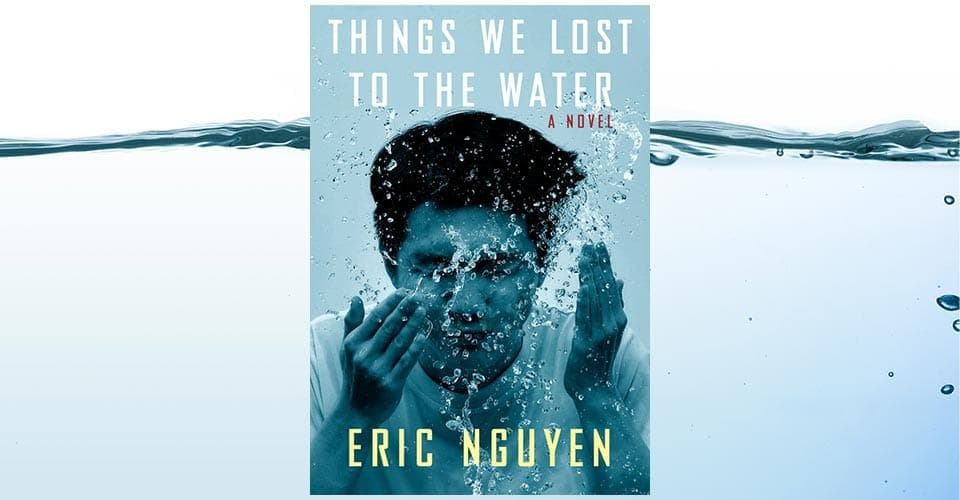An Imagined History
By Sala Levin ’10
Photos courtesy of Eric Nguyen
A child of Vietnamese refugees, Eric Nguyen ’09 knew that his parents never wanted to talk about what they had endured in their home country and amid the jarring displacement of their early days in the United States.
But in the humidity of Louisiana, which reminded Nguyen of his visits to Vietnam, he found a new world of Vietnamese immigrants who could fill in some gaps in his knowledge, and inspire his acclaimed debut novel about a family finding their place in the grocery stores, churches and apartment buildings of New Orleans.

“Things We Lost to the Water” follows a Vietnamese mother and her children, beginning in the late 1970s, as they navigate a separation from their husband and father, a longing for the familiarity of home, and the immense difficulties of life as refugees in the U.S.
Nguyen had tried to ask his parents about their lives in southern Vietnam and their journey to the U.S., including for one assignment in an Asian American studies class at UMD. “They were suspicious about it,” Nguyen says. “Like, why would a school want to know about their story?” (Nguyen’s parents, who don’t read English, know he’s written a book about Vietnamese people but have not read it.)
But during Nguyen’s time as a creative writing graduate student at McNeese State University in Lake Charles, La., he visited barbershops, restaurants and other spots frequented by Vietnamese Americans, learning their own stories.
Water—central to life in both Vietnam and New Orleans—flows throughout his novel, published in May. (In Vietnamese, nuoc means both “nation” and “water.”) After Huong, the mother, travels by boat to Louisiana, she longs to tell her host family “about the way the water moved, how you never got used to it, about the men on the boat and their constant fighting, about the uneasy sense of knowing only water, knowing that it connected the entire world—one shore to another—yet not knowing when you might see land.”
In The New York Times, reviewer Bryan Washington wrote that the novel “strikes a very elusive balance: vast in scale and ambition, while luscious and inviting—enchanting, really—in its intimacy.” The book also made the summer reading list of an influential tastemaker: former President Barack Obama.
Christopher Lowe, who sat on Nguyen’s thesis committee at McNeese State, knew from early drafts that the novel was a display of exceptional talent. It “creates for readers a really immersive experience where they can inhabit these lives for a while ... and really see something of themselves, of humanity, of the experience of loss, all of those universal things, within this very precise experience,” he says.
For Nguyen, who is working on his second book, the experience of writing a heralded debut has been surreal. “It’s kind of a dream to have this impact on people, that it meant something to them.”
0 Comments
Leave a Reply
* indicates a required field

